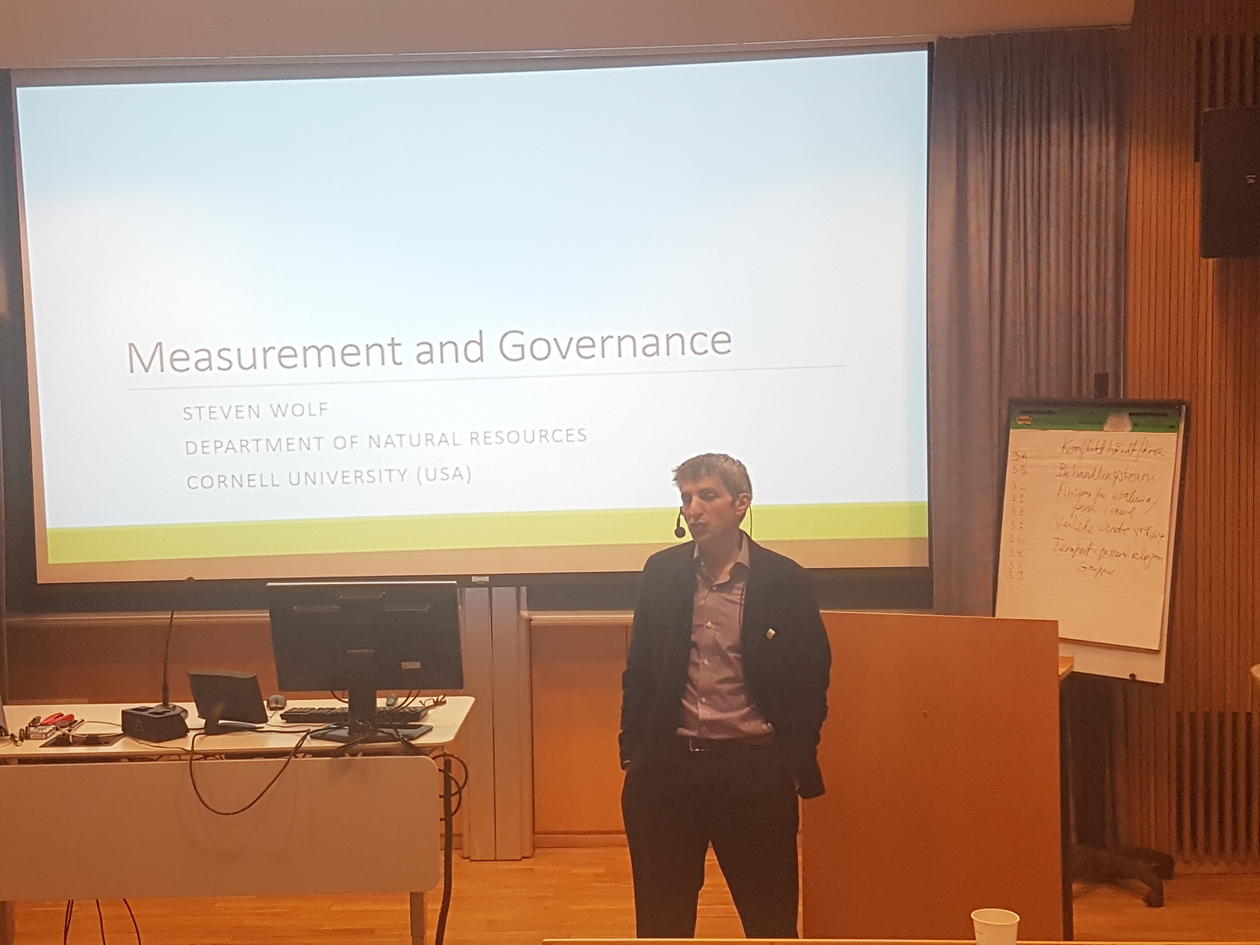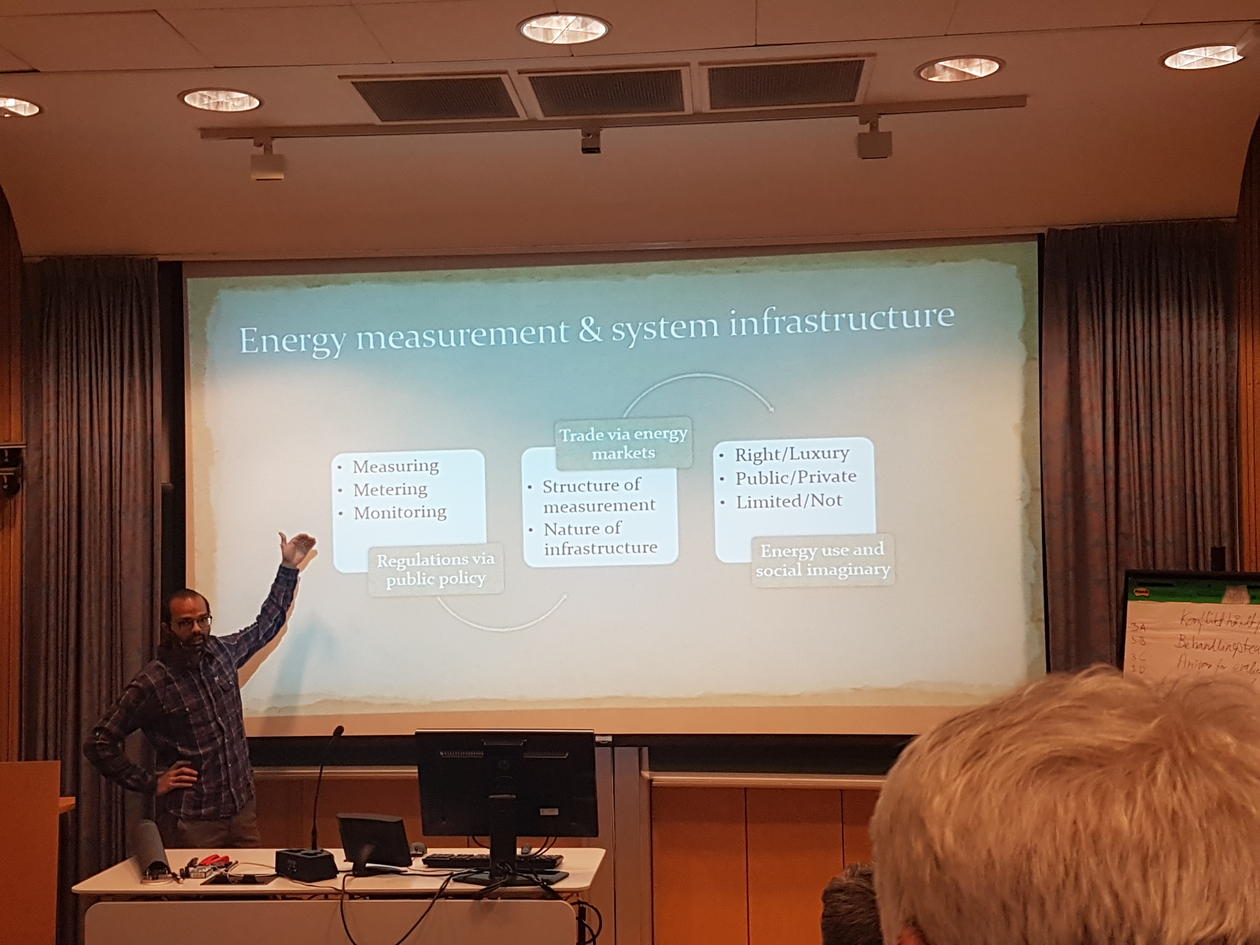Energy, measurement and society
Read about our recent half-day seminar on the measurement of energy, its infrastructure and its implications for the society.

Hovedinnhold
Energy drives everything around us. Everything you do, the car you drive, the phone you use, the food you eat, the light in your home, everything requires energy. But how, and why do we measure energy? What infrastructure do we have, how will we measure energy in the future, and can measuring energy impact social and environmental aims? On April 10th, four experts from around the world came together to discuss these questions.
For those who could not attend the seminar, and for those who want to see it again, a recording of the full seminar, except the closing discussion, is available here.
Professor Steven Wolf from Cornell University opened the seminar with a talk on the multi-faceted challenge of measurement from an analytical perspective. According to Steven, measurement is an input to management that through tracking and monitoring allows us to understand and perhaps control things. He also warned that in the question of sustainability, elected officials, bankers and consumers could use science, technology and measurement as a substitute for action. We already know what is needed, but instead of action, we are over-studying things.
BKK is a power company providing electricity to about 213 000 consumers in western Norway. Measurement is crucial in their everyday business, enabling them to monitor the grid, operate it in an effective and reliable manner, comply with regulatory requirements, and of course invoice their customers. Hans-Terje Ylvisåker is the programme director of BKK SmartNett. In his presentation, he introduced measurement in BKK today and in the future. New sensor technologies will be available, such as Radio Frequency Identification Neurons or Universal Wireless Sensors, which are able to measure temperature, pressure and other factors that might affect the operation of the power system. Tomorrow’s grid will be smarter, affected by digitalisation, automation, more sensors and an increased interaction with the customers. According to Hans-Terje, the change happening now is disruptive; the change for the last 100 years has been incremental.
More than 50 million households in the EU are struggling to attain adequate heating and cooling, to pay their utility bills on time, and to live in homes free of damp and mould. In Portugal, nearly 30 % of the population is potentially under energy poverty conditions, especially related to space heating and cooling. Dr. João Pedro Gouveia and colleagues from the NOVA University of Lisbon have developed an index to map energy poverty and applied it to a case-study of Portugal. This index tries to map energy poor regions, and to identify hotspots for action by combining socio-economic details of the population with building characteristics and energy performance. This mapping of energy poverty could be useful to identify local actions, to support the definition of tailor-made policies and could be applied to other countries in the European Union.
COST (Cooperation in science and technology) is a European framework that supports international cooperation between researchers, engineers and scholars across Europe. Dr. Siddharth Sareen, who also organized and chaired this half-day seminar, is the co-chair of the working group on indicators in the "COST Action ENGAGER: European Energy Poverty". The COST Action aims to change and improve the major societal challenge that household-level energy poverty is in Europe through multidimensional research and policy. Specifically, Dr. Siddharth’s working group is trying to develop an operational European energy poverty framework, by formulating indicators and including toolkits that use available and emerging data sources to identify and measure energy poverty on a wide European scale.

